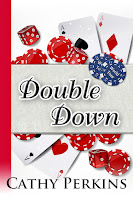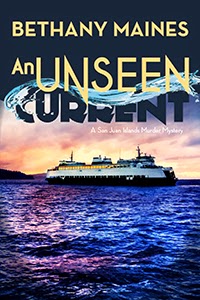Series and Standalones
Series or Standalone?
By Cathy Perkins
Hitting
today’s Frustration Meter – getting to the end of what you thought was a really
great standalone novel and stumbling onto the words “END OF BOOK
ONE.”
today’s Frustration Meter – getting to the end of what you thought was a really
great standalone novel and stumbling onto the words “END OF BOOK
ONE.”
(Yes, First World Problem.)
Worse yet – ugh – a serial novel.
Or the flip side – you reach the end of a story, and the ending is so
perfect…
perfect…
“How am I
supposed to live without these characters? What
happens next? How could the author be so cruel?“
supposed to live without these characters? What
happens next? How could the author be so cruel?“
Which begs the questions: Series or Standalone?
Probably the single biggest advantage to a series is if you like the characters, you can get more of their
story. After a while it becomes comfortable, like hanging out with friends. I know
these people! I like them – what’s happening?
story. After a while it becomes comfortable, like hanging out with friends. I know
these people! I like them – what’s happening?
Over
the course of the series, the characters can change, hopefully improving for
the better, over a more realistic, longer period. As a reader, it’s easier to commit
time and money if the book in a series. If you like the first one, you figure
you’ll like the next one in the series, rather than chancing another random book, even
another book by the same author.
the course of the series, the characters can change, hopefully improving for
the better, over a more realistic, longer period. As a reader, it’s easier to commit
time and money if the book in a series. If you like the first one, you figure
you’ll like the next one in the series, rather than chancing another random book, even
another book by the same author.
The down side is, if each book in the series doesn’t have a
complete and satisfying story arc of its own, you may feel you’re left hanging
while waiting for the next book. Books aren’t like TV shows. You
don’t get the next episode a week later. Also, depending
on the overall story arc of the series, there may be significant threads left
unresolved. This can bother a reader who has to wait for the next book.
complete and satisfying story arc of its own, you may feel you’re left hanging
while waiting for the next book. Books aren’t like TV shows. You
don’t get the next episode a week later. Also, depending
on the overall story arc of the series, there may be significant threads left
unresolved. This can bother a reader who has to wait for the next book.
Writing a series means every installment has
to be as good as or better than the last. No rehashing of a theme. No cookie
cutter plots. No formulas. Readers deserve to feel their appetite for the adventure was satisfied, and they can’t wait for the next in the series.
to be as good as or better than the last. No rehashing of a theme. No cookie
cutter plots. No formulas. Readers deserve to feel their appetite for the adventure was satisfied, and they can’t wait for the next in the series.
Another challenge is
backstory. Can the reader pick up a book in the middle of the series and get
enough backstory for it to make sense? Or do they have to start with book one?
How much backstory does the author include in subsequent books without boring
the dedicated series fan or confusing the mid-series pick-up reader?
backstory. Can the reader pick up a book in the middle of the series and get
enough backstory for it to make sense? Or do they have to start with book one?
How much backstory does the author include in subsequent books without boring
the dedicated series fan or confusing the mid-series pick-up reader?
 Finally, what if a series goes too long?
Finally, what if a series goes too long?What if the protagonist keeps falling into the same old danger time after time?
This can result in the B word: boring. You don’t want to go there.
The advantage of writing a standalone is
trying new ideas or themes without the confines of your established setting and
characters. Your readers can discover a new side of your talent. A standalone
for a series author is like an experimental science lab. Just don’t blow up the
place and go so far over the line that your fans don’t recognize you.
trying new ideas or themes without the confines of your established setting and
characters. Your readers can discover a new side of your talent. A standalone
for a series author is like an experimental science lab. Just don’t blow up the
place and go so far over the line that your fans don’t recognize you.
What do you think?
Do you prefer reading
or writing a series or standalones?
or writing a series or standalones?
 |
| Cathy Perkins |
After
publishing three standalone novels, I’m easing into the series idea. DOUBLE
DOWN (presale available here) features several of the characters from So About the Money (JC speaks! He
finally gets a point of view!) with events right after “book one”
ends.
publishing three standalone novels, I’m easing into the series idea. DOUBLE
DOWN (presale available here) features several of the characters from So About the Money (JC speaks! He
finally gets a point of view!) with events right after “book one”
ends.
I’m working away on Book Two, so hopefully readers will jump on board
with this new story and series.
with this new story and series.
Keep in touch at my website or sign up for my newsletter.












I like series.
Thanks for stopping by Dru!
I really like series in mysteries too, but I'm reading a fabulous standalone right now. Maybe I'm an equal opportunity reader 😉
I love to read a series about the same private eye and get hooked.